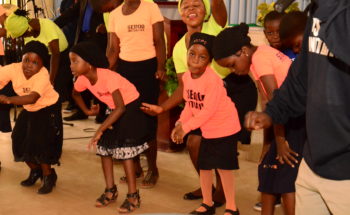SEDOO Initiative for Children with Special Needs (SECHILD), an NGO , has called for increased attention to children with disabilities.
The President of the group, Mrs Kawan Anjira, made the call at the opening of the new SECHILD Centre on Saturday in Abuja.
The News Agency of Nigeria reports that special needs are commonly defined by what a child can’t do—milestones unmet, activities avoided, or experiences denied. These hindrances can hit families hard and may make special needs seem like a tragic designation.
Some parents will always mourn their child’s lost potential, and some conditions become more troubling with time. Other families may find that their child’s challenges make triumphs sweeter and that weaknesses are often accompanied by amazing strengths.
Anjira, therefore, called on the federal and state governments to collaborate with non-governmental organisations to enlighten families and individuals on the need to accept and cater for children with special needs.
She said that the aim of the organisation was to help children with disabilities and their parents to access resources and opportunities to enable the children to achieve their full potential.
She said that SECHILD was providing medical and educational support to children with special needs.
She added that the group had been involved in the campaign and sensitisation on accepting children with special needs, and would step it up to cover more areas.
She said the NGO had supported parents, caregivers and lovers of children with autism, down syndrome, cerebral palsy, visual impairment and hearing disabilities.
Mrs Avery Gavar, the Director, National Human Right Commission, said that although government, through the establishment of a person with disability commission, rectified and made efforts through the right of persons with disability, more could still be done.
Gavar said such children required adequate and increased care and attention at every given time.
Dr Joseph Mbahan, a Physiotherapist with SECHILD, highlighted some causes of cerebral palsy, which he said was the paralysis of the brain that occurred during either pregnancy, prolonged labour or when a child as a newborn, fell and damaged part of the brain membrane.
Mbahan said the condition could only be managed through physical exercise, as it has no permanent cure.
He called on government, individuals and organisations to support children with disabilities, noting that awareness about the various disabilities facing children was low, especially in rural communities.
He added that the lack of information about children’s needs was affecting the growth and development of such children.


